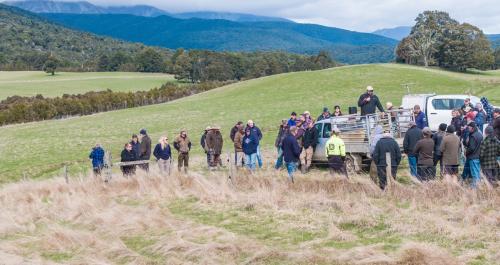Search results
Displaying 631 - 640 results of 1348
- Factsheet… 0800 beeflamb 0800 233 352 wwwbeeflambnzcom farmers farmers factsheet provides help guidance … feed ifwhatwhen grazing off share farming prioritise feed use decide which stock …
- News… research provides invaluable information for farmers looking to improve their land … carried out over three years on an Otago farm. …

- News… Farmer Time for Schools has seen further … the past year, connecting more learners with farmers across the country to give them a view of life on the farm. … Farmer Time for Schools celebrates growing …

- News… benefits of running a mix of species within a farm system. …
- News… answer this question but says, like so many farm system questions, it is not …
- News… Farmers from across the top of the south … technologies that can add real value to farm operations. … Farmers explore practical tech at Tākaka field …

- Industry data… dry conditions made destocking necessary farmers good pricing mutton meant more ewes … processing capacity lambs before winter some farmers choosing able carry extra animals … 49 per cent decrease 295 while increase farm sales forestry has yet led significant …
- Page… Why is biodiversity important on farm? Biodiversity is a win-win – for you as a farmer and for your property’s ecosystem. Your … booklet, called “Benefits of Biodiversity for Farmers” which includes case studies and …
- News… for agricultural emissions that works for farmers, with a price introduced only if … to our perspective and insights on how farmers can best play their role in addressing climate change. “Farmers have sent us a clear message that they …

- Factsheet… wwwbeeflambnzcom 0800 beef lamb 0800 233 352 farmers farmers profitable dairybeef factsheet … merit beef bulls opportunity dairy beef farmers work together mutual advantage choice …